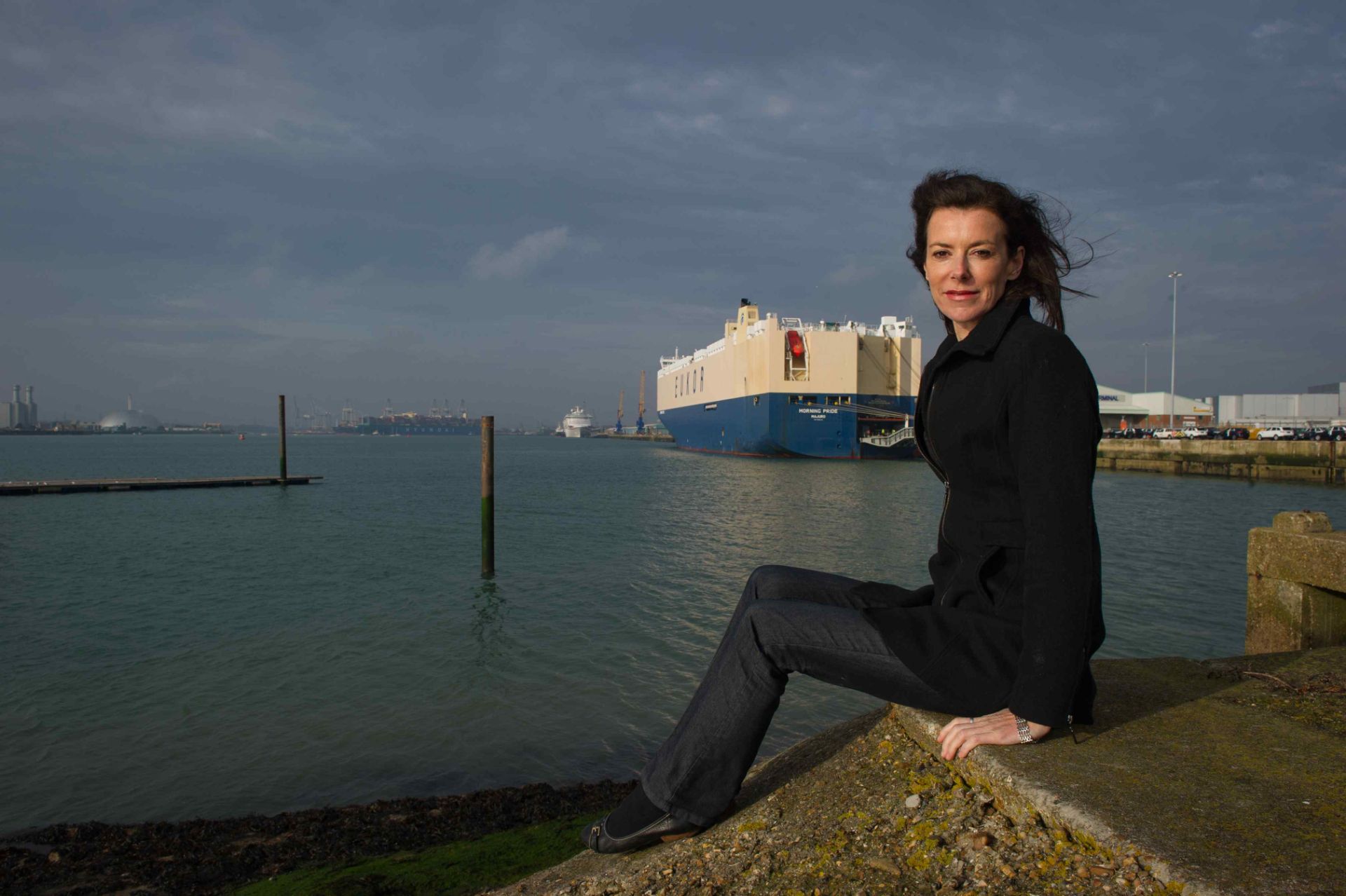
Rocking the boat
Dr Kate Pike, Senior Research Fellow and Associate Professor, recently led an international team from China, the UK and Nigeria, researching gender imbalance and cultural issues among the world's seafarers.
The merchant maritime industry has always been strongly male dominated, with just 2% of seafarers globally being women. Being in the minority, whether as the only women working on a vessel or as the only one of a particular nationality, can make you potentially vulnerable to harassment and bullying and feelings of isolation. If you are a woman seafarer in the merchant shipping industry, you are likely to be under a constant spotlight.
Launched at the International Maritime Organisation (IMO) in September 2015, and sponsored by the ITF Seafarers’ Trust, the Gender, Empowerment and Multi-cultural Crew (GEM) project was initiated to examine seafarers’ welfare, focusing on gender issues within the multi-cultural crew environment.
Putting the spotlight on welfare at sea
This ambitious project is the first of its kind, aiming to extend limited knowledge surrounding these areas and to ultimately help create a safer working environment for all seafarers, in particular women and ethnic minorities, by encouraging their participation and retention within the industry.
Unique access to information from Southampton Solent University’s Warsash Maritime Academy (WMA), Shanghai Maritime University in China and Nigeria’s National Maritime Academy allowed the team to survey cadets before and after their first sea time, gaining insights into their initial perceptions and actual experiences. Interviews with maritime stakeholders including policy makers, shipping companies, recruiters, ship owners and female seafarers (current and former) helped increase the breadth of the research.
Generating international interest
The GEM research has generated interest from all over the world, demonstrating a keen appetite within the industry for cultural change that can make it a safer environment free from harassment and discrimination.
Some very specific differences were identified between nationalities; differences which primarily originate from cultural and traditional values, economic status and political ideologies. The findings also show that despite increasing awareness of gender issues and some new initiatives to combat them, there is still a long way to go in order to achieve a better gender balance and equality among minorities at sea.
The project’s findings question whether the industry is collectively doing enough to make life at sea a safe and non-threatening environment to work in. The challenges of the modern maritime workplace demonstrate the need to re-think training at all levels to help instil an inclusive work environment that does not tolerate any forms of abuse.
Creating a zero-tolerance environment
Ship owners and senior officers, in particular the Captain, have a duty of care to create an inclusive and safe working environment for their crew, especially women and other minority groups.
Education is essential in this; more targeted training for senior officers would help them to deal with potential gender issues on board, while elimination of the ‘what happens at sea, stays at sea’ culture would encourage more open dialogue among crew members and help eliminate harassment, bullying and abuse. The research recommends mentoring at sea for all cadets and new recruits, to help combat the potential difficulties they may face during their first voyages.
Building awareness and expectations
Redressing the maritime gender imbalance is going to require a wider change in awareness and understanding of the opportunities for women at sea – particularly among girls, who are often less inclined to select the STEM subjects needed to take up cadetships.
The challenge lies with the industry to co-ordinate efforts and find a balance between adequately preparing women for sea and deterring them with too many ‘bad news’ stories. Existing human element leadership and management (HELM) courses should be examined to make sure seafarers are adequately prepared for specific gender and cultural diversity issues.
Ensuring that both male and female cadets receive guaranteed sea-time training would be a logical step. This would, however, involve many companies re-thinking their strategy; particularly in China where currently no women are newly recruited on board vessels, and in Nigeria, where sea time is often very difficult for female cadets to obtain.
Instilling a more ethical approach
Ethical recruitment and investment in employees is essential to enabling the best working environment at sea; the onus is on shipping companies to make sure that appropriate recruitment is taking place, particularly concerning cadet placement and the on-board mix of nationalities.
Part of that investment means supporting groups and networks aimed at women in the maritime industry, noting the value of existing operations such as Women in Shipping and Trade Associations (WISTA) and the IMO’s Programme for the Integration of Women in the Maritime Sector.
It’s also vital that we open up dialog between shipping companies in relation to potential gender and multi-cultural issues they are encountering and the measures taken to resolve them to promote a better way of working. The GEM project is a valuable first step, increasing awareness and encouraging the sharing of best practices, but there remains much to be done.
The research team responsible for the GEM project were: Dr Kate Pike and Emma Broadhurst, Dr Minghua Zhao, Dr Pengfei Zhang, Amos Kuje, and Nancy Oluoha
You can read more about the GEM project at www.solent.ac.uk/GEM




